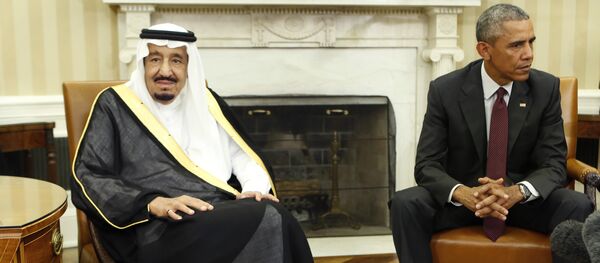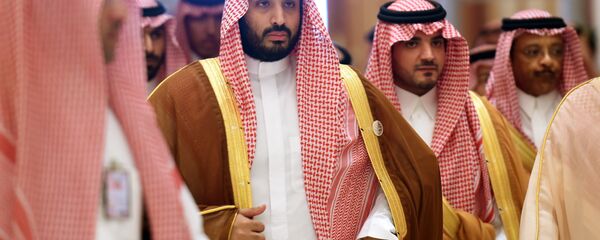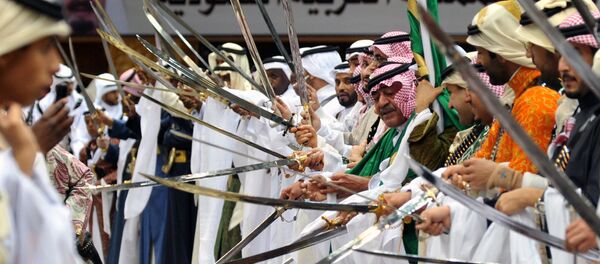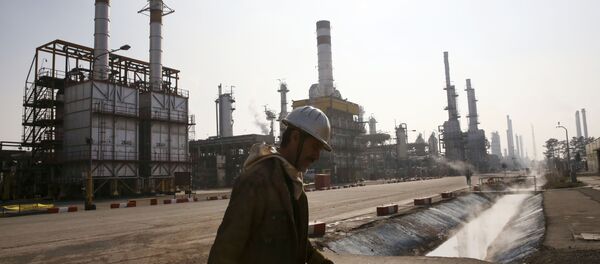The countries are seeking to solve the issue of the oversupply of crude which is behind the ongoing slump in oil prices. Qatar informed the Kremlin Wednesday that around 17 countries are currently planning to attend the Doha negotiations.
However, Tehran, an OPEC member, has shown little enthusiasm for the initiative.
Exclusive: #Iran #oil minister will not attend #Doha oil #freezing_meeting but Iran's representative will make it. pic.twitter.com/eZDfq9nWPL
— Reza Zandi (@R_Zandi) 13 апреля 2016 г.
"#Iran #oil minister will not attend #Doha oil #freezing_meeting but Iran's representative will make it," Reza Zandi of Seda weekly magazine tweeted on April 13, adding that Mr. Kazempoor Ardebili, an Iranian governor in OPEC will attend the event as Iran's representative.
Citing Iranian Minister of Petroleum Bijan Zangeneh, the media source specified that Tehran aims to boost Iran's annual output "by at least 25% when they come on-stream by later-March 2017."
In light of this, the results of the upcoming meeting in Doha prompts skepticism, experts say.
"Investors awaiting Sunday's meeting of major oil producers in Doha are eyeing signs of a pact that could freeze oil production in a bid to stabilize prices. But they are also mindful of a political dynamic that threatens to derail an agreement: Saudi Arabia and Iran don't like each other," William Watts of MarketWatch.com writes in his latest article.
Iran is determined to increase its oil output in order to reach its pre-sanctions level of crude exports, and with reason: it needs to revive an economy hit by Western sanctions.
"Head of oil ministry Public Relations department in an interview with its webpage stated: considering the fact that Iran plans to achieve its share in the oil world market and reaches the crude production level prior to lifting the sanctions, also considering that this fact has been discussed in bilateral and multilateral meetings with OPEC and non OPEC members to understand Iran's condition, Iran's Oil Minister will not attend this meeting," Zandi tweeted Friday.
Watts calls attention to the fact that the two Middle Eastern states have always been "on opposite sides of price debates." At the same time, the analyst adds, Riyadh and Tehran are currently supporting opposite sides in the Syrian civil war.
In order to throw a monkey wrench in Tehran's resuming oil trade, Saudi Arabia rushed to sell a "huge amount" of the commodity to China, Iran's longstanding customer, in February 2016. On its part, Tehran has boosted its oil sales to India in March, while Saudi volume of crude shipped into the country has dipped, Watts remarks.
Amid the trade "war," Saudi Arabia is seeking to establish closer ties with Russia, China and Venezuela — Iran's allies — to get room to maneuver.
According to US journalist David Gardner, Riyadh regards Moscow as a potential partner despite the fact that the ongoing Syrian crisis remains a stumbling block in the way of Russo-Saudi potential rapprochement.
Incredible as it may seem, "Prince Mohammed bin Salman has forged what Arab officials describe as a 'functional and substantive' relationship with President Putin, covering Syria, possible Saudi arms purchases from and investment in Russia, and joint attempts to stabilize oil prices by freezing output," Gardner noted in his article for the Financial Times.
Indeed, Saudi Arabia's economic difficulties prompt the country to form the "alliances of convenience."
The prospects of the Doha meeting look rather bleak, but it is possible that Saudi Arabia would use it to its own advantage by pinning the blame for low oil prices on Iran and simultaneously strengthening its ties with Tehran's allies.








